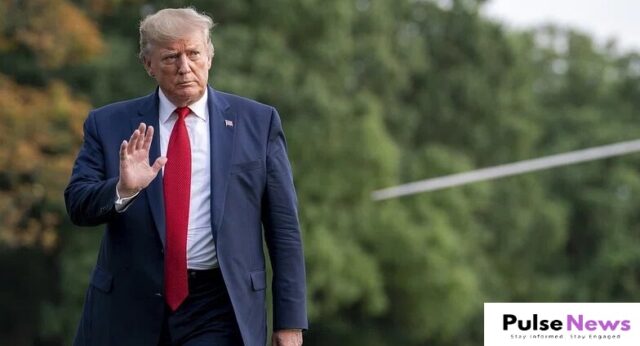WASHINGTON — President-elect Donald Trump’s long-standing promise to impose sweeping tariffs on foreign imports is about to encounter significant legal and political hurdles, as business leaders, legal experts, and lawmakers prepare to challenge his plans.
From tech firms to apparel companies, businesses are bracing for the impact of Trump’s proposal to slap tariffs as high as 20% on all foreign goods, with an additional 60% tariff targeting Chinese imports. Industry groups have begun strategizing on how to block the tariffs, launching legal actions and lobbying Congress to rein in the president’s tariff powers.
Despite Trump’s claims of unilateral authority to impose these tariffs, legal experts warn that the scope of his proposed actions could overstep the constitutional limits of executive power. Although the Constitution grants Congress the authority to set tariffs, it has historically delegated much of that power to the president, particularly for national security reasons or to address unfair trade practices. Presidents have used this delegated power in the past, including Trump during his first term, when he implemented tariffs on steel, aluminum, and Chinese imports.
However, Trump’s latest tariff proposal would cast a much wider net, targeting virtually all imported goods from every country. This expansion of executive authority is likely to spark legal challenges, as experts question whether Congress has granted the president such broad discretion. Many anticipate that the conservative-majority Supreme Court, which has shown a propensity to limit executive power, could side with opponents of Trump’s tariff agenda.
“This is a fundamental question: Can Congress essentially delegate the entire authority to manage trade policy to the president?” asked Alan Morrison, a law professor at George Washington University. “Expect legal challenges from anyone who imports goods into the U.S. unless there’s a reluctance to confront a president known for his vindictive nature.”
A Closer Look at Trump’s Tariff Agenda
Trump has long championed tariffs as a tool to revive American manufacturing, arguing that they would incentivize companies to move production back to the U.S. and protect American industries from foreign competition. In a speech last fall, he referred to tariffs as “the most beautiful word in the dictionary,” emphasizing their importance in his economic vision.
However, critics, including economists and business leaders, have pointed out that tariffs are unlikely to deliver on these promises. The costs associated with relocating manufacturing facilities to the U.S. — including higher wages, logistical challenges, and regulatory hurdles — are substantial. Moreover, past tariff initiatives have often resulted in higher prices for consumers or reduced profits for businesses, as companies pass the additional costs onto customers.
The National Bureau of Economic Research and the Federal Reserve have both found that Trump’s steel and aluminum tariffs led to job losses in sectors reliant on these materials. Ed Brzytwa, a trade expert at the Consumer Technology Association, warned that the new tariffs could exacerbate inflation, particularly in the technology sector. Products like smartphones, tablets, and gaming consoles would likely see price increases, further contributing to the inflationary pressures many consumers have already expressed frustration with.
“We don’t want another round of inflation hitting American households,” Brzytwa said, pointing out that recent election results suggest voters are already wary of rising prices.
Legal and Political Showdowns
Trump’s ability to implement tariffs without congressional approval was a hallmark of his first term, but this time, many anticipate a much tougher fight. Lawmakers, including Sen. Rand Paul (R-Ky.), have pushed for new legislation to limit the president’s power on tariffs. A bill introduced by Paul in September would require Congress to approve nearly all tariff actions, signaling a growing concern about unchecked executive authority.
Sen. Rick Scott (R-Fla.) also suggested that Trump’s proposed tariffs would likely require a supermajority vote in the Senate to move forward, with the potential for Democratic support being crucial for success. “This is not something that will pass easily without broad backing,” Scott said.
Even if Congress does not take immediate action, much of the battle will likely shift to the courts. Historically, courts have allowed presidents considerable latitude in imposing tariffs for reasons of national security or foreign policy, but a broader tariff regime may stretch this authority. Petros Mavroidis, a trade law expert at Columbia University, noted that the Supreme Court’s recent pro-business rulings could lead to a more restrictive interpretation of the president’s power to impose tariffs across the board.
“This new approach could cross legal boundaries, especially when targeting U.S. allies. The courts might find this too far-reaching,” Mavroidis said.
Potential Fallout for American Consumers and Global Trade
The proposed tariffs are also likely to put a strain on global trade relations. U.S. allies, who have been subject to tariffs in the past under the guise of national security concerns, could face additional burdens, potentially leading to retaliatory measures. Jennifer Hillman, a Georgetown University professor specializing in trade law, warned that Trump’s expansive tariff plans could provoke international legal challenges, particularly if they stray too far from the original intentions behind Congress’s delegation of tariff powers.
While Trump may argue that these tariffs are essential to protect national security and revitalize American industry, the legal and political battles ahead could ultimately limit the scope of his plans. If courts and Congress push back, Trump may find himself forced to scale back his proposals, reshaping his economic vision before it even takes effect.
As legal and legislative challenges loom, the future of Trump’s tariff agenda remains uncertain, with a high-stakes showdown between executive power, business interests, and legislative oversight.











